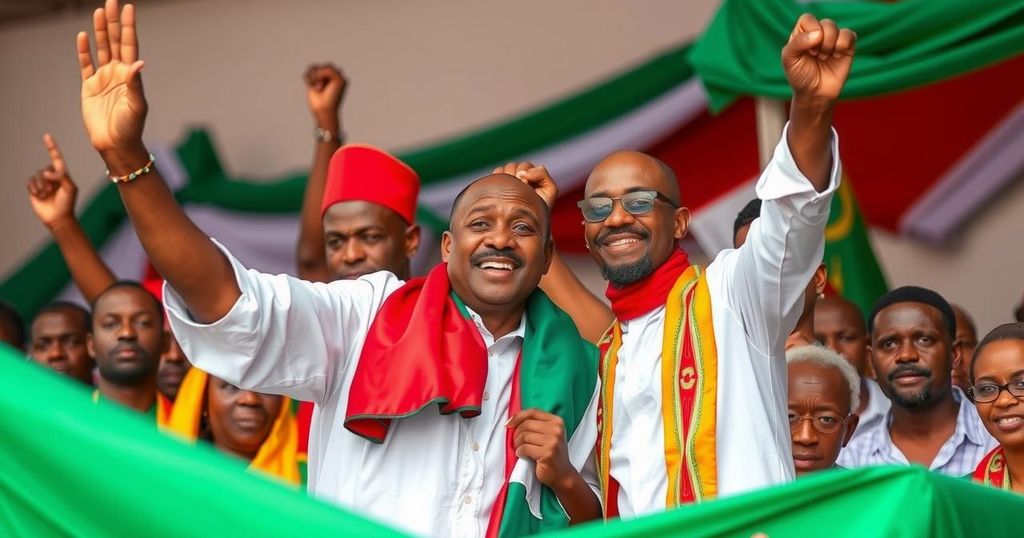Chad’s Ruling Party Claims Parliamentary Majority Amid Opposition Boycott

Chad’s ruling Patriotic Salvation Movement secured a majority of 124 seats in the National Assembly during parliamentary elections, which saw significant opposition boycotts. The elections were characterized by a low voter turnout of 51.56%, indicating public skepticism. This election, the first in over a decade, is seen as part of a transition towards democracy amid ongoing security concerns.
In the recent parliamentary elections held in Chad, President Mahamat Idriss Deby’s ruling party, the Patriotic Salvation Movement, emerged victorious by securing 124 out of 188 National Assembly seats. The elections took place against a backdrop of significant boycotts from opposition parties, who raised concerns about the legitimacy of the electoral process. The electoral commission reported a voter participation rate of 51.56%, which the opposition interpreted as a sign of public skepticism regarding the election’s credibility. This election, the first in over a decade, is seen by Deby’s party as a crucial step towards democratization and decentralization in the country, following Deby’s ascension to power after his father’s death and a disputed presidential election last year.
Chad has faced numerous political challenges since the death of long-time President Idriss Deby Itno, leading to Mahamat Idriss Deby taking control as a military ruler in 2021. This transition followed decades of consolidated power within the Deby family. The call for parliamentary elections after a significant gap of over ten years was framed as part of a larger strategy to decentralize power and reduce governmental control at the national level. However, the boycott by multiple opposition parties reflected deep-seated doubts regarding the electoral process, echoes of previous elections marred by allegations of fraud and manipulation.
In conclusion, the recent parliamentary elections in Chad have reaffirmed the ruling party’s dominance amidst widespread opposition boycotts and allegations of electoral illegitimacy. The low voter participation rate suggests a significant lack of confidence among the electorate, raising questions about the future of democracy in Chad. As the country navigates regional security challenges and critical political reforms, the implications of these results warrant careful scrutiny.
Original Source: www.aljazeera.com







